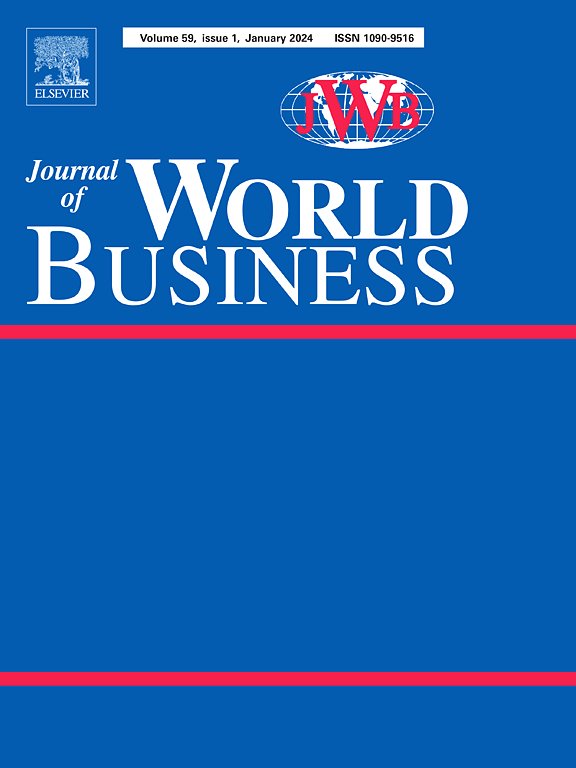Strategic vulnerabilities of emerging market MNCs – How litigation experiences in weak patent systems increase the risks of patent litigation abroad
IF 8.8
1区 管理学
Q1 BUSINESS
引用次数: 0
Abstract
Threats from patent litigations are a major roadblock for the internationalization strategies of MNCs from emerging markets (EMNCs). While existing theory focuses on weak patent systems in emerging economies as an obstacle for multinational corporations from developed economies, we conceptualize them as experiential learning contexts that shape the patent litigation routines of local firms. We reason that the depth of organizational learning from patent litigation experiences as defendants in weak, domestic patent systems is counterproductive for EMNCs. Such experiences lead to the development of patent litigation routines that are ill-suited for operating in countries with strong patent systems, thereby exposing EMNCs to costly patent litigations. We find empirical support by analyzing 2,273 Indian firms between 2007 and 2017. Learning from operating in many countries with strong patent systems and experience with international, as opposed to national, patent filings create boundary conditions.
新兴市场跨国公司的战略脆弱性——薄弱专利制度下的诉讼经验如何增加国外专利诉讼的风险
专利诉讼的威胁是新兴市场跨国公司国际化战略的主要障碍。虽然现有理论将新兴经济体中薄弱的专利制度视为发达经济体跨国公司的障碍,但我们将其概念化为塑造当地公司专利诉讼惯例的体验式学习环境。我们认为,在薄弱的国内专利制度中,作为被告,组织从专利诉讼经验中学习的深度对新兴市场国家来说是适得其反的。这种经验导致专利诉讼程序的发展不适合在拥有强大专利制度的国家开展业务,从而使新兴市场国家面临代价高昂的专利诉讼。我们通过分析2007年至2017年间2273家印度公司找到了实证支持。从在许多拥有强大专利制度和国际(而非国内)专利申请经验的国家开展业务中学习,可以创造边界条件。
本文章由计算机程序翻译,如有差异,请以英文原文为准。
求助全文
约1分钟内获得全文
求助全文
来源期刊

Journal of World Business
BUSINESS-
CiteScore
16.50
自引率
11.20%
发文量
73
期刊介绍:
The Journal of World Business holds a distinguished position as a leading publication within the realm of International Business. Rooted in a legacy dating back to 1965, when it was established as the Columbia Journal of World Business, JWB is committed to disseminating cutting-edge research that reflects significant advancements in the field. The journal actively seeks submissions that propel new theoretical frameworks and innovative perspectives on International Business phenomena. Aligned with its domain statement, submissions are expected to possess a clear multinational, cross-border, or international comparative focus, while remaining pertinent to the study of management and organizations. JWB particularly encourages submissions that challenge established theories or assumptions, presenting pioneering or counterintuitive findings. With an inclusive approach, the journal welcomes contributions from diverse conceptual and theoretical traditions, encompassing allied social sciences and behavioral sciences. Submissions should either develop new theories or rigorously test existing ones, employing a variety of qualitative, quantitative, or other methodological approaches. While JWB primarily caters to scholars and researchers, it values contributions that explore implications for Multinational Enterprises and their management, as well as ramifications for public policy and the broader societal role of business.
 求助内容:
求助内容: 应助结果提醒方式:
应助结果提醒方式:


